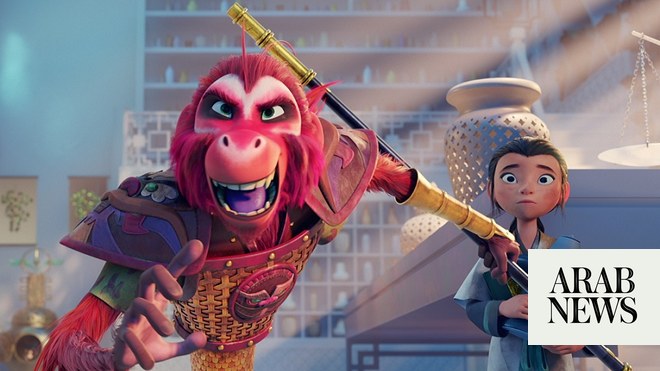
Whether deliberate or not, the release of new Netflix series Vendetta: Truth, Lies and the Mafia very neatly coincides with that of the Sopranos prequel, The Many Saints of Newark. But while the latter is an offshoot of a TV show that went out of its way to deglamorise the mob, compared with this new documentary it stinks of Hollywood artifice. Indeed, there is a bracing lack of romance here; rather, it is a slow procession of old, tired men and women smoking indoors, worn down by the relentlessness of it all.
Vendetta tells the story of Telejato, a tiny, local Sicilian television station that made its name with a virulently anti-mafia stance. Fronted by Pino Maniaci – a small, chainsmoking man with a moustache so huge it makes him look like a Pixar character – Telejato news bulletins often took to calling out specific members of the mob directly. It wasn’t entirely unexpected to see Maniaci spit: “You pieces of shit,” while jabbing his finger at the camera, which you have to admit isn’t something you would expect from Huw Edwards.
Of course, the mafia retaliated. Maniaci’s car was torched. His dogs were murdered. Threats against him were numerous and constant. But, despite all this, Telejato stayed on air. Over six episodes, Vendetta tells the story of the feud, slowly revealing just how far the mafia’s influence reaches, and how impossible it is to extract them from any avenue of modern Sicilian life.
Made over the course of 15 years, it begins in the aftermath of a government crackdown. Assets and businesses were seized by the authorities, and only returned once it was proved that the owners had no involvement in organised crime. As you might expect, many of the assets remained seized. But then Maniaci started to look at what happened afterwards. The police were now in possession of an incredible amount of money. Where was it going, exactly? The answer, according to Maniaci, was a number of high-ranking public officials who had deep ties to the mafia. There is also a suggestion that it went even higher.
As soon as Maniaci started prodding around the higher echelons of local government, a tape appeared in which he is apparently seen attempting to extort hundreds of dollars from a local mayor. The bulk of Vendetta, then, takes the form of a courtroom drama, where Maniaci fights to clear his name against charges that he, too, has succumbed to the evils of corruption. At times, the weight of the consequences of this become almost too much to bear. If the mob has its tendrils around the government and the media, what’s the point of fighting any more?
Gradually, you get the impression that Maniaci is his own worst enemy. At first the red flags come slowly. His own sister claims he just wants to be famous. His habit of constantly referring to himself in the third person, as if he were a brand, starts as an eccentric quirk then blooms into something more pathological. There’s a revelation later in the series that threatens to blow wide apart his reputation as an unimpeachable man of good. Gradually you start to question his motives and wonder whether he really is the last bastion of justice.
It’s a gripping story, but it suffers from the usual true-crime flaws. Its six episodes could have been compressed into four, and the genre’s obsession with deliberate obfuscation – muddying a narrative just to keep the audience on the hook – is starting to look both tired and cynical, especially when you can hop on Wikipedia and read the entire arc of the trial in a couple of paragraphs.
Nevertheless, when it fires off properly, Vendetta really fires off. What’s more, if you look at the central conflict from the right angle, there’s more than an element of Tiger King to it. Thanks to Coppola and Scorsese, and even – despite his protestations – David Chase, we have a habit of seeing the mafia as something that happened long ago and far away from us. The most chilling aspect of Vendetta is that it underlines how virulent it still is – and how inescapable.












